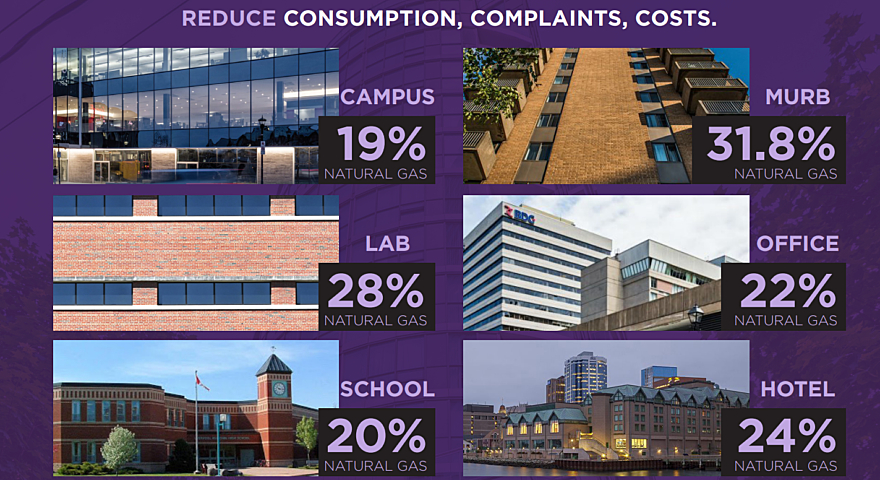
Ecopilot® – Using AI for energy optimization in buildings

Published April 18, 2023
in Case Studies
By Peter Polanowski
This article is part of our Earth Week 2023 series, where we highlight Canadian start-ups and Canadian-based businesses leading the way in sustainability efforts across the country.
Energy-efficient buildings will play an important role in our transition to a low-carbon future. Globally, they’re responsible for about 40% of global energy consumption, while producing up to one-third of GHG emissions. In Canada, the commercial building sector accounts for 12 percent of Canada’s energy use. And while building codes, regulations and energy efficiency programs are important tools to make buildings more efficient, other solutions are still needed to prep buildings for a net-zero world.
Enter Ecopilot® – A cleantech pioneer which offers the world’s first artificial intelligence (AI) software for continuous building operations. Since 2008, the company has successfully installed over 1200 systems throughout Europe, Canada, and the US. The company is owned by Swedish-based Nordomatic AB, but has made Halifax its base for its North American operations.

How it works
Ecopilot’s AI software hooks up to existing building automation systems (BAS) and begins by finding a building’s balance point temperature – the point at which a building no longer needs cooling or heating. The AI determines the temperature by using real-time indoor data, as well as 5-day weather forecasts and the building’s thermal mass – its ability to absorb, store and release heat.
Ecopilot® then works continuously to calculate the energy balance between these factors, automatically adjusting set points for heating, ventilation, and air conditioning (HVAC) every-two minutes. Once installed, the energy and cost savings are immediate. Not only does the technology provide HVAC energy savings of up to 40 percent, it averages a simple payback of less than 3 years. Ecopilot’s technology works best in large buildings that have big energy demands, like multi-unit residential buildings, commercial office spaces, civic buildings, schools, etc.

EcoPilot® AI works as both a climate mitigation and adaptation tool. Until now Ecopilot® installations have reduced emissions by more than 10,000 tonnes per year, equivalent to approximately 40,000 cars.
“Our AI’s intelligent control reduces energy use and demand in buildings’ HVAC systems, and can even be used to size up new electrification technology retrofits. It can also increase a building’s resilience to extreme weather events, which are increasing in severity due to climate change. Our technology’s ability to monitor weather forecasts and continuously plan ahead, helps prepare a building for upcoming weather events to keep occupants comfortable”.
Nick Kendrick – Head of Business Development – Western Canada
EcoPilot® and Sustainability
The energy savings that Ecopilot’s software provides leads to a reduction of scope 1 and 2 emissions – the energy produced and purchased from a building operator’s electricity and natural gas. By monitoring energy savings in real-time – it can help companies report on their sustainability progress in ESG reports.
The company’s positive impacts on the environment are being recognized, and for good reason. Last year, Newfoundland Power and Newfoundland and Labrador Hydro held their annual takeCHARGE Luminary Awards. The ceremony recognizes companies, organizations, communities and individuals in Newfoundland and Labrador who are taking big steps in energy efficiency. Atlantic Place – a 355,000 square foot office and retail space, took home the win thanks to Ecopilot’s AI software. In 2022 alone, the company reduced HVAC energy consumption by 16.6 percent, leading to over $107,000 in energy savings.
Reducing energy consumption, while aiming for net-zero emissions across buildings in Canada by 2050 will be a challenge. But companies like Ecopilot® AI are offering new cleantech solutions to help get us there.
To find out more about Ecopilot® AI, visit ecopilotai.com